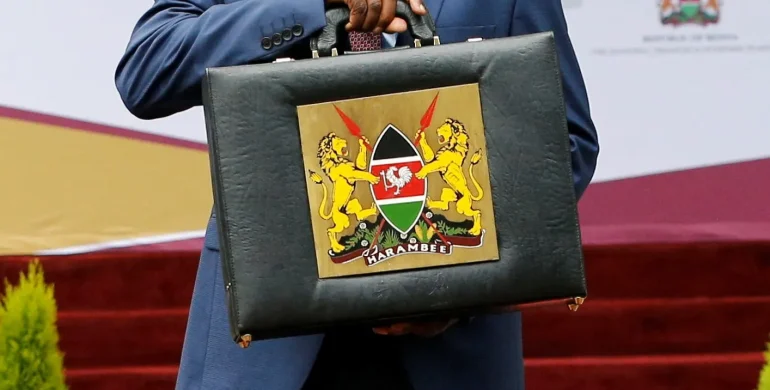The Finance Bill 2025 introduces a wide array of tax and regulatory reforms aimed at expanding Kenya’s revenue base. Framed as part of the government’s broader economic strategy, the Bill proposes changes to the Income Tax Act, VAT Act, and Excise Duty Act, among others. However, a closer look reveals a host of proposals that could significantly affect ordinary citizens, local industries, and critical service sectors.While the need for fiscal sustainability is undisputed, the proposed amendments raise fundamental questions about fairness, policy coherence, and the protection of vulnerable groups.
Strain on Retirees and Pensioners
Several amendments to the Income Tax Act target retirement benefits in ways that may create new financial burdens for retirees. Notably, the Bill seeks to remove tax exemptions on pensions below KSh 300,000, as well as on death benefits and widow or dependent payouts.
This effectively means most pensions will become fully taxable, potentially reducing take-home income for many low- and middle-income retirees. These changes come without clear justification and could discourage long-term saving through formal retirement schemes, creating uncertainty for both individuals and retirement fund managers.
Legal Ambiguity and Administrative Gaps
The Bill deletes key definitions in the Income Tax Act, including “debenture,” “venture company,” and “tribunal.”
- The removal of “debenture” without redefining how unsecured loans are treated creates ambiguity around interest taxation, particularly for foreign loans.
- Omitting the definition of “tribunal” raises questions about how future tax disputes will be handled, potentially weakening access to justice for taxpayers.
- Deleting the definition of “venture company” threatens to disrupt Kenya’s evolving venture capital ecosystem by removing clarity on which companies qualify for tax incentives.
In each case, the amendments create uncertainty without offering a clear alternative legal framework, which could hinder tax enforcement and compliance.
VAT Proposals: A Double-Edged Sword
The Finance Bill further removes VAT exemptions on a wide range of goods and services. These include; Medical equipment and data storage devices used in healthcare, Construction materials for affordable housing and tourism infrastructure, Inputs for local pharmaceutical manufacturing, goods used in charitable and donor-funded projects, Electric bicycles and locally assembled mobile phones.
The removal of these exemptions may boost short-term tax revenues but could also raise operational costs across critical sectors. Healthcare, already under pressure, may become less accessible and more expensive. The affordable housing program, a key government agenda, could be undermined by higher construction costs. Similarly, the green energy transition risks being slowed by taxing tools like electric bikes and solar batteries.
Charitable organizations may be forced to scale back operations due to increased VAT on previously exempt inputs, which could have cascading effects on vulnerable populations who rely on these services.
Income Tax on Informal and Small-Scale Actors
Another concern lies in extending withholding tax obligations to scrap dealers and small suppliers to public entities. These groups, often operating informally, may now be required to withhold or account for tax despite lacking the infrastructure or training to do so. This could push more businesses into the informal economy, reducing overall compliance.
There is also a risk of undermining Access to Government Procurement Opportunities (AGPO) programs, which were designed to empower youth, women, and persons with disabilities. Without exemption clauses, these groups could be unfairly burdened when supplying goods to public entities.
Weakening of Oversight and Enforcement Mechanisms
Several sections removed from the Income Tax Act weaken KRA’s enforcement tools and remove taxpayer safeguards. These include; The link between tax compliance and land transfer registration and provisions allowing appeals and objections to withholding tax decisions. The removal of these mechanisms may reduce accountability and transparency in the tax system.
Undermining Local Industry and Innovation
The Bill also eliminates VAT exemptions for; Locally assembled phones, Electric bicycles, Digital data storage used in education and content creation and Transportation of sugarcane and other essential agricultural inputs
These changes contradict the government’s stated commitment to supporting Made in Kenya initiatives and transitioning to a digital and green economy. By raising input costs, the reforms risk discouraging investment, limiting access to technology, and slowing job creation in key sectors.
While the Finance Bill 2025 aims to boost government revenue, it may do so at the cost of fairness and social protection. By removing key exemptions and weakening safeguards, it risks harming retirees, informal workers, and essential service providers. As the debate continues, policymakers must prioritize clarity, equity, and inclusive growth because fair taxation is not just policy, it’s a constitutional duty.
Disclaimer:
This article is based on personal analysis and publicly available information regarding the Finance Bill 2025.
It is intended solely for informational purposes and does not constitute legal, financial, or tax advice.


